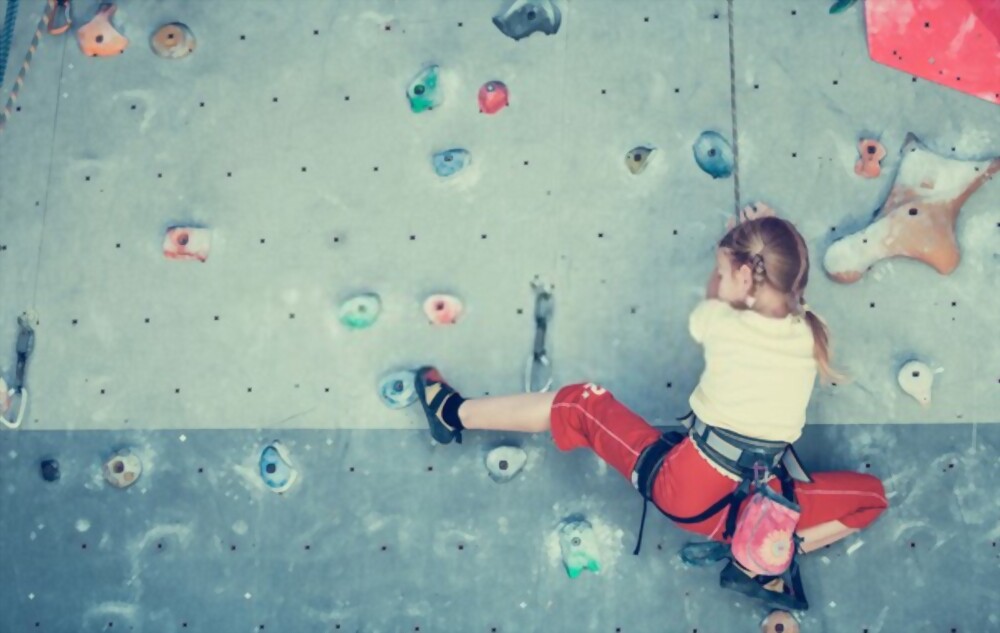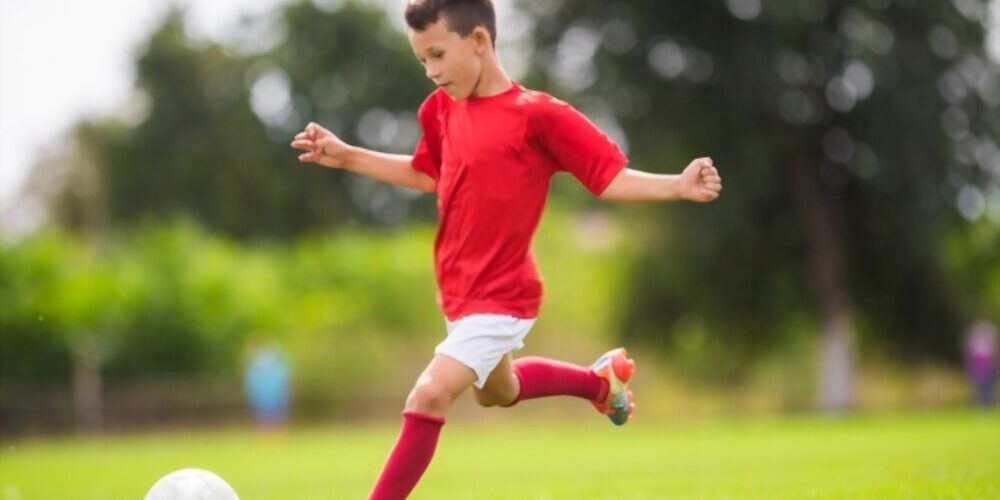We at UK Fostering are still on a high after the wonderful victory by the England Team taking them to the UEFA European Football Championships Final. An amazing achievement as whilst the woman’s team have reached finals in 1984 and 2009 this will be (and it may have been mentioned a few times) the first time that the men’s teams have been in a final in an international competition since 1966 (or 1066 as my Mum keeps saying!).
Hopefully, my voice will have sufficiently recovered to ensure full singing splendour to cheer England on this Sunday, as well as ability to loudly share my ‘expert’ opinions on the quality of the refereeing and/or management decisions, which I’m sure are most welcome to all others in the room! Come on – admit it, we all do it!
All this armchair football manager action aside, how do we keep the momentum going in relation to moving from the only exercise you get being jumping up from the sofa when an England score a goal, to translating into actual sport participation?
We know that being active can be a good thing, both physically and mentally. For children who have experienced trauma and disruption in their young lives (such as children in foster care) sport can offer opportunities such as making new friends, enjoying new activities and learn new skills outside of the academic environment. The Fostering Network suggests that:
“The negative impact of insecurity and adversity early in life on the confidence, resilience and self-esteem of children and young people in care can result in lower goal-setting as they try to protect what is sometimes a fragile and battered self-identity.
A sense of achievement for children and young people in care can be gained by providing opportunities to participate in activities, away from the formal education setting in which they perform disproportionally poorly when compared to the general school-aged population. Successful development of an interest or hobby can also spark confidence to try new things and begin the upward spiral of positive thinking that can lead to success in other areas of life.”
(thefosteringnetwork.org.uk, 2021)
With the Euros, Wimbledon, Tokyo Olympics & Paralympics, and all the other sports on the TV to inspire us this summer, what can we do to motivate ourselves and our young people to have fun doing a sport?
Have a look at our resource section at the bottom of this blog, but also the Raising Children parenting website (from the very sports orientated Australia) suggests the following to help children to enjoy sports more:
“When children aren’t into sport
Junior sport can have many benefits for children. It can be great for their fitness, health, and development. And it can also help them learn important life skills like teamwork.
But some children don’t like sport or other organised physical activities, and that’s OK. Other children might just need support to deal with their worries and learn they can enjoy sport.
If your child isn’t into sport, understanding why is a good first step. Then you can work out the best way to help your child and keep him active.
Skill development
Sometimes children don’t have the physical skills they need for some sports or organised physical activities like gymnastics, athletics, and martial arts. They might not be able to run, jump, catch or throw as well as other children.
If this sounds like your child, you could help her practise at home, at the park or when she’s with family and friends. Try setting small, reachable targets like ‘doing two strong passes’, ‘running to catch up with another player’, or ‘dancing for one song longer’. This can help your child see and enjoy progress, improve skills, and gradually gain confidence.
Everyone learns at different speeds, so encourage your child to focus on what he’s doing well rather than comparing himself to other children.
‘I’m not good enough to play’
Sometimes children feel that they have to be very good at sports or other organised physical activities to join in, and they’re worried that they’re not good enough.
If your child wants to play a particular sport and you think she does have the skills, you could encourage her to have a go in an informal way. Inviting friends to try with her is also a good idea. Sometimes having fun doing sport with a friend can help your child overcome worries and feel more confident.
If you think a particular sport is beyond your child’s ability just now, you could encourage him to try out other sports or activities he might be interested in – for example, bike riding, swimming, dancing, cricket, or soccer.
Over-competitive environment
A very competitive environment or pressure to perform could put your child off.
Clubs or sports that are less competitive and offer more support might be a better fit for your child. You can talk with other parents, team coaches or club members to find out what the local club or team environment is like.
Children deal better with competition as they get older. It might be best to wait until your child shows an interest in playing a competitive sport.
Fear of failing
Some children might feel scared of things they see as failure – like not winning.
You can help by sending your child the message that sport, and organised physical activities are about having fun, being active, trying hard, being a good sport and encouraging others. And you can do this in simple ways – for example, ask your child whether she enjoyed the game, rather than whether she won.
It’s also important to give your child lots of praise when you see him being a good sport. For example, you could say, ‘I loved seeing you encourage your team mates today’.
In the end, your child’s effort is the only thing that’s completely within her control. The effort, not the result of the competition, is what makes it a success or failure. If your child gets to the end of a game or event and has tried her very best, she has been successful.
Wrong sport
Some sports or physical activities just aren’t right for some children. Some children like organised sports, and others don’t. Some like team sports, and others like individual sports. Some don’t like sports but love to dance, ride a bike, or go walking.
You can help your child find the right activity by encouraging him to try a range of different sports, physical activities, and games.
Feeling self-conscious
Children can feel out of place if they’re bigger or smaller than other children, or if they’re less muscular or less skilled.
If your child feels like this, it might help to let her know that children of all shapes and sizes can enjoy sport. It might also help to show her examples of people with her body type who enjoy sport and physical activities – especially other children.
Most importantly, you can help by finding and building a supportive and safe environment that welcomes your child’s efforts.
Disability or health problems
Living with disability or health problems like asthma or diabetes might mean your child isn’t confident about participating in sport or other organised physical activities.
The first step is to find out how much activity and what type is safe and healthy for your child. You can start by talking to your GP or other health professional.
In many cases there’s no need for your child to avoid activity altogether. Activity can even improve the symptoms of some conditions.
You could check to see whether any local sports or clubs offer modifications or support for children with additional needs.
Other options for physical activity
If your child really doesn’t want to do organised sport, there are plenty of other fun activities that can keep him physically active.
 A great option is to just encourage free play – for example, shooting goals, playing chase or hopscotch, jumping rope, and using monkey bars at the playground. The important thing is that your child is active with friends and has fun.
A great option is to just encourage free play – for example, shooting goals, playing chase or hopscotch, jumping rope, and using monkey bars at the playground. The important thing is that your child is active with friends and has fun.
You could also consider other physical activities like:
- skateboarding, scooting, or riding
- dance, martial arts, gymnastics, drama, or yoga classes
- gardening, hiking, or doing suburban walking trails.”
(www.raisingchildren.net.au, 2021)
Perhaps you are already involved with young people in sports at a grass-roots level? Have you considered using your skills in listening, encouraging, and supporting children and young people, to become a foster carer? Get in touch and find out more.
Sources
https://raisingchildren.net.au/school-age/nutrition-fitness/physical-activity/sport-enjoy-it-more
Resources
https://www.nhs.uk/better-health/get-active/ NHS Advice for Adults & Children on Getting Active Including Home Workout Suggestions, Apps, Free Things
https://www.bbc.co.uk/ideas/videos/how-to-be-a-good-sporting-parent/p08t8t2j?playlist=made-in-partnership-with-the-open-university How To Be A Good Sporting Parent!
https://thecpsu.org.uk/resource-library/podcasts/ep1-parents-grass-roots-involvement-in-sport/ NSPCC CPSU – Grass-Roots Involvement In Sport – Parents of Disabled and Pre-School Children Discuss Their Roles
https://www.bbc.co.uk/sport/get-inspired/45353880 – Find A Local Sports Club
By Lynsey Dobbs – Senior Recruitment Officer, UK Fostering
